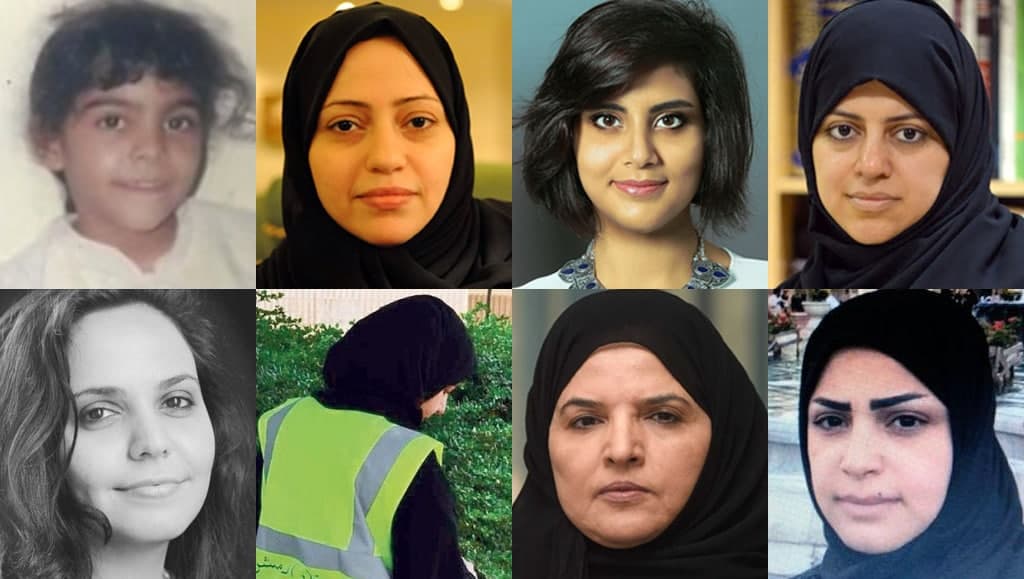
After decades of struggle and grueling sacrifices in recent years, women in Saudi Arabia have wrested back some crumbs of their basic rights. However, this phenomenon was unfortunately very followed by a horrific development in the methods of violations and official crimes to which women human rights defenders were subjected. A number of women human rights defenders are still in prisons; those who have been released are targeted through trials and not allowed to travel. On International Women’s Day on March 8, which is celebrated by the world with the aim of “reflecting on the progress made, calling for change, and celebrating the work of ordinary women, their courage and steadfastness in performing exceptional roles in the history of their countries and societies,” the role and struggle of women in Saudi Arabia, which led to the changes in the recent years, should be highlighted.
As a result of the relentless and influential struggle of women human rights defenders, the Saudi government has been forced in the recent years to change the way it deals with the file of women’s rights, as it has issued a number of decisions and promises. The most notable one was the lifting of the driving ban on women in June 2018, which was the only ban of its type in the world and had lasted for decades. This change came after successive campaigns launched by activists, for which the government’s vengeance was swift. In exchange for this remarkable change, the Saudi government arrested the most prominent activists who called for it days before the lifting of the ban took effect. After that, the activists were subjected to multiple violations and crimes, including torture and denial of the right to a fair trial, among others.
Furthermore, Saudi Arabia still officially practices various types of violence against women in public life, despite the promises made in terms of women’s rights and empowerment. The Saudi government is still failing to protect women in their family lives. In spite of new laws, which the government stated will protect women, the mechanism to protect them from domestic violence is still deficient and unable to protect the victims of violence. In addition, a bad reputation continues to haunt the care homes, which in reality are prisons for women and have many defects.
In August 2019, the Saudi Press Agency reported that the Passports and Civil Status Departments began the implementation of the travel documents law and its amended regulations, and media outlets stated that these amendments give women the right to travel without a guardian’s permission. Despite this, laws in Saudi Arabia still allow men to impose restrictions on women’s travel in a number of ways, including filing disobedience cases before the courts.
With regard to the employment sector, in July 2019, Saudi Arabia amended laws to ensure that “citizens are equals in terms of the right to work without any discrimination based on sex, disability, age, or any other form of discrimination.” However, the government did not take any serious measures to stop the discriminatory acts. Moreover, women still need male approval to open a bank account, leave a government-run prison, or file a lawsuit.
On International Women’s Day, the European Saudi Organization for Human Rights (ESOHR) sees that the struggle of women in Saudi Arabia has led to some simple changes that have taken place, but in return the price has become exorbitant. In the recent years, the government has expanded the repression of women; its boldness has developed against them has developed in horrible ways, including through the use of brutal torture, widespread arrests, intimidating investigations, and pledges that instill fear and limit their activities.
The organization believes that the continuing revenge and intimidation of women human rights defenders and the struggled activists refutes all official promotion of changes regarding women’s rights. At least 47 women are still in political prisons, according to statistics gathered by ESOHR with great difficulty, including women human rights defenders. Likewise, other women are still under trial, and restrictions are still imposed on those who were released. Women who are accustomed to raising human rights demands on social networks are today more anxious and filled with dread that they will be exposed to repression.
